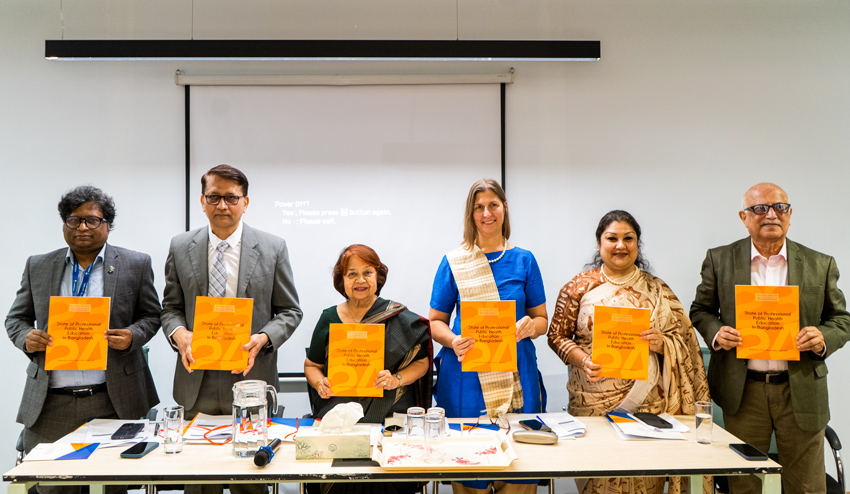

Bangladesh Health Watch (BHW) unveiled its ninth biennial report titled “State of Professional Public Health Education in Bangladesh” at a program held at BRAC Tower in the capital on Friday.
The event, attended by distinguished guests, explored the current challenges and opportunities in professional public health education across the country.
The program commenced with a welcome address by Dr. Ahmed Mushtaque Raza Chowdhury, Convener of BHW, followed by a presentation by Ms. Mahruba Khanam from BHW, which highlighted key findings of the report.
In his keynote speech, Chief Guest Dr. Md. Sarwar Bari, Secretary, Medical Education and Family Welfare Division, Ministry of Health and Family Welfare, emphasized the importance of integrating the “One Health” approach, which underscores a multi-sectoral response to health challenges.
Dr. Bari called for urgent curriculum updates, citing inconsistencies between public and private institutions. “As the disease pattern has changed, so has the demography. It is crucial to update the curriculum to reflect these changes,” he remarked.
Special Guest Miranda Beckman, Deputy Office Director, Office of Population, Health and Nutrition, USAID, stressed the necessity of developing a public health education (PHE) roadmap to address future needs.
Dr. Mohammad Zahirul Islam, Health Advisor at the Swedish International Development Cooperation Agency (SIDA), underscored the critical role of public health education in enabling evidence-based policy-making in the health sector.
During the interactive question-and-answer session, panelists and participants discussed critical issues, including curriculum disparities between private and public institutions, employability challenges for graduates, and the need for expanded opportunities in the field of public health.
The event concluded with remarks from Prof. Dr.Rounaq Jahan as she urged that it is high time to evaluate the public health education curriculum.
Chair of the session and Convener of BHW’s Advisory Group, who reiterated the urgency of addressing disparities in public health education to build a stronger healthcare workforce. Shaikh Masudul Alam, Programme Director of BHW, delivered a vote of thanks to close the program.
AF


